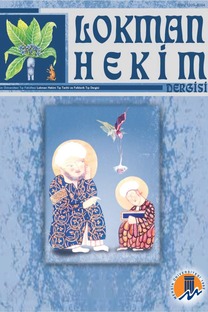YÜKSEK ZİRAAT ENSTİTÜSÜNDE TARİHİ BİR GELENEK: ANT İÇME
İnsanlık tarihinin en eski geleneklerinden biri olan “ant içme”; herhangi bir duruma ilişkin duygu ve düşüncelerde inandırıcılığın sağlanması amacıyla bazı değerler üzerine yemin edilmesi şeklinde günümüze dek uygulanagelmiştir. Kendi kendine söz vermeden, kutsal bilinen bir şeyi ya da bir kişiyi tanık göstererek yemin etmeye kadar ve çoğu kez ritüeller eşliğinde yapılan bu uygulama; gerekleri yerine getirilmediğinde psiko-sosyolojik etki ve tepkilere yol açabileceği gibi bazı durumlarda da yasal yaptırımlara başvurulmasına neden olabilmektedir. Hipokrat döneminden bugüne dek uygulanagelen hekim antlarından, Hititler zamanına dek izleri sürülen askeri antlara, özel birliklere, topluluklara ya da kurumlara adım atılırken yapılan bağlılık yeminlerinden, törenleri ile göz dolduran yurttaşlık antlarına, hatta Pauper Yemini’ne kadar geçmişten bugüne sayısız örneği olan ant içme geleneğinin günümüzdeki en yaygın uygulamaları, öğretim kurumlarının mezuniyet törenlerinin ayrılmaz bir parçası haline gelen “meslek yeminleri”dir. Bu bağlamda, Türkiye'de, veteriner hekimliği alanında ilk meslek andının, 1981 yılında, Ankara Üniversitesi Veteriner Fakültesi’nde uygulandığı ve izleyen yıllarda diğer veteriner fakültelerinde de başlatılan bu uygulamanın yaygınlaşarak gelenekselleştiği bilinmektedir. Arşivlerde yapılan son çalışmalarda, Türkiye’de 172 yıllık veteriner hekimliği öğretiminin Yüksek Ziraat Enstitüsü (YZE) çatısı altında geçen 15 yılını kapsayan zaman diliminde, “Baytar Fakültesi” öğrencileri de dahil olmak üzere Enstitünün tüm öğrencilerine bir törenle içtirilen antların metinleri ve bu törenlere ilişkin bilgilere ulaşılmıştır. YZE’nin ilk öğretim kadrosu arasında dikkat çeken Alman öğretim üyelerinin Almanya’dan getirdikleri anlaşılan bu geleneğin, 1980’li yıllardan itibaren veteriner fakültelerinde uygulanagelen meslek yemini ile bir ilgisi bulunmamaktadır. Bununla birlikte, gerek YZE Baytar Fakültesi öğrencilerini de kapsaması; gerekse -uygulama şekliyle- Türkiye’deki benzer törenlerin en eski örnekleri arasında yer alması dikkate alındığında, bu uygulamanın hem veteriner hekimliği tarihi hem de bilim tarihi notlarına kazandırılmayı hakettiği düşünülmüş ve bu poster çalışması hazırlanmıştır.
A Historical Tradition of the Higher Institute of Agriculture: Oath
As one of the oldest traditions of the history of mankind, “oath-taking” has survived todayin the form of swearing upon moral values with an aim to establish conviction in emotions and thoughts relating tosituations. This practice, which may vary from committing oneself to something, to swearing by giving evidence to a sacred object or person, is mostly accompanied by rituals. If its requirements are not met, the practice of oath-taking may trigger psycho-sociological actions and reactions, and in some cases, may even result in legal sanctions being applied. From the oaths of the medical profession administered ever since the Hippocrates’ era and the military oaths dating back to the Hittites, to the pledges of allegiance taken when entering special unions, communities or institutions, as well as to the oaths of citizenship sworn at grand ceremonies, and even to the Pauper’s Oath, the deep-rooted tradition of oath-taking continues to be followed today, mostly through the “professional oaths” that have become an inseparable part of the graduation ceremonies of educational institutions. In this context, in 1981, professional oath-taking was administered for the first time in the field of veterinary medicine in Turkey, at the Faculty of Veterinary Medicine of Ankara University. In the ensuing years, oath-taking was also adopted bythe other Faculties of Veterinary Medicine in the country, and in the course of time,this practice became common and was even traditionalized.In recent archive research, the texts of the oaths taken by the students of the Higher Institute of Agriculture (HIA), including the students of the “Faculty of Veterinary Medicine”, during the first 15 years of the 172-year-history of scientific veterinary education in Turkey, were unearthed, and valuable information was obtained on the ceremonies organized at the HIA for oath-taking. This tradition, determined to have been imported by the German scholars of the first academic staff of the HIA from their homeland Germany, is not related with the practice of professional oath-taking administered at the Faculties of Veterinary Medicine as from the 1980s. Nonetheless, as this practice involved the students of the Faculty of Veterinary Medicine of the HIA, and given that it constitutes one of the oldest examples of oath-taking in Turkey, in view of the way it was performed, it was concluded that this practice merited reference in both the history of veterinary medicine and the history of science, thus this poster was prepared.
